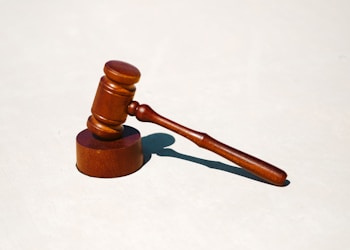Legal procedures are a topic that many people know very little about. They come into play in everyday life, but only when you least expect it to happen. You may find yourself involved in legal proceedings without even knowing how it happened. That’s why it’s important to be knowledgeable and aware of the laws and legal procedures that exist. This article will provide you with a comprehensive guide for what you need to know about legal procedures so that these events can become less daunting in your future.
What Are My Rights During an Arrest?
If law enforcement officials decide to make an arrest, then they will place handcuffs on their suspect and escort them away from the scene of their crime or suspected crime. If this happens to you, then don’t struggle with the officers because resisting any sort of arrest is considered a criminal offense in itself. It’s important to understand that certain laws and legal procedures can vary from state to state. That’s why it’s important to keep in mind what city or state the offense took place in because Minneapolis Criminal Defense laws can be significantly different from those in Los Angeles. You have the right to remain silent until your attorney is present, so do exactly that without giving too much information away about yourself or your involvement in the case at hand.
When is it Legal for the Police to Enter Your Home?
If the police suspect that a crime has occurred or will occur at your home, then they can legally enter and search your residence. They may only enter if you allow them inside, but if you aren’t home, they can still come in as long as they have a warrant. This means that they must show supporting evidence of their suspicions before entering. If police officers fail to follow this standard process and simply barge into your house without any legal right to do so, then you should contact an attorney who can provide additional guidance on what you should do next.
Can I Record You Without Telling You?
Many people assume that recording law enforcement officials with audio devices are illegal because they don’t want to be recorded. In fact, recording a police officer is not only legal, but it’s also a good idea. If you ever have an encounter with an official and feel that your rights are not being respected, then you may always use any means necessary to defend yourself from harm or false accusations. This includes recording video evidence of the event in question so that you will have clear information about what occurred in the incident once the dust settles.
What Are My Rights During Police Questioning?
If law enforcement officials suspect that you committed a crime or are guilty of some sort of offense, then they can detain and interrogate you at their discretion. This is where it becomes important for them to know and assert their rights and defend themselves from harm. You have the right to remain silent and not answer any questions until you consult a lawyer or your attorney is present in the room with you. If the police make it seem like they need immediate answers, then politely inform them that you will tell them everything once your legal representation is present.
What Are My Rights During Traffic Stops?
The rules of traffic stops are generally standard no matter where you go, but there are some exceptions depending on the location where the event takes place. In general, when an officer pulls up behind you while you’re driving and wants to know why your vehicle has been spotted in a particular area, then it’s best to pull over immediately so that this interaction does not escalate any further than necessary. If you are planning to fight a traffic ticket, then you should know that your constitutional rights were definitely not respected if the official coerced you into accepting it.
Are There Any Noteworthy Exceptions?
It’s important for people to understand the law so that they know their rights and are able to assert them during any legal proceedings. However, there are some exceptions to this rule depending on the location where you are at the time of your arrest. For example, if you are being arrested in a private residence, then officers must inform you that you have the right to remain silent before questioning anyone living there about other potential crimes or violations that may have occurred or will occur because of your detainment. Police officers must also have a warrant to enter the premises unless they suspect another criminal activity is taking place inside.
While being aware of these rules can help protect yourself from further harassment or issues with police officers who believe they are above the law, it’s important to consult with an attorney if you have any questions or are involved in a legal case of your own. It’s always better to be safe than sorry, so knowing what your rights are can help keep you out of harm’s way.















